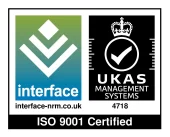Grade in aluminium plays a crucial role in various UK industries, offering strength, lightweight properties, and corrosion resistance. However, selecting the right aluminium series for your project can be challenging due to the numerous options available.
Selecting the right alloy is important for ensuring durability, performance, and cost-effectiveness, whether you work in construction, manufacturing, or engineering. Individual aluminium grades are made for specific uses and have unique qualities that affect their strength, ability to be machined, and resistance to environmental factors.
Just for your convenience, we’ll discuss the most important factors to consider when choosing an aluminium alloy, the grades of aluminium, and their most common uses.
Understanding Aluminium Grades and Their Classifications
Each grade of aluminium serves a specific purpose. We group these grades based on their composition, strength, and ease of use. In the UK, the most common types of aluminium fall into two groups:
- Wrought Aluminium Alloys: These are shaped by mechanical processes like rolling, extrusion, or forging. Examples include 1050, 5052, and 6082.
- Cast Aluminium Alloys: These are made by pouring molten aluminium into moulds. Examples include A356 and 319.
For each grade, there is a subcategory for alloys that can be heated and those that cannot. Non-heat-treated aluminium has excellent corrosion resistance, but heat-treated aluminium is stronger and more commonly used in structural applications.
Factors to Consider When Choosing an Aluminium Metal Grade
Selecting the best aluminium alloy depends on several factors:
1. Strength Requirements:-
Different projects require different levels of strength. For example:
- High-strength applications (e.g., aircraft and automotive parts) often use 7075 aluminium, known for its exceptional tensile strength.
- Moderate-strength applications (e.g., marine and construction industries) commonly use 6061 or 6082 aluminium.
2. Corrosion Resistance:-
It is important to choose an alloy with high corrosion resistance if your project will be in a wet or rough environment:
- Marine applications: 5052 and 5083 offer excellent resistance to saltwater corrosion.
- Food and medical industries: 1050 and 3003 are commonly used due to their non-reactive properties.
3. Machinability and Workability:-
Some aluminium metal grades are easier to machine, weld, and shape than others.
- For easy machining: 2011 and 6082 are preferred.
- For superior welding properties: 5356 and 4045 are excellent choices.
4. Weight Considerations:-
Even though aluminium is naturally light, some grades have a better strength-to-weight ratio than others. This makes them perfect for use in aerospace and cars. 6061 and 7075 are often used in situations where weight and strength are important.
5. Cost and Availability:-
Balancing performance with budget is crucial.
- Pure aluminium grades like 1050 are more affordable but lack strength.
- 6061 and 6082 offer a balance of cost and performance.
Common Aluminium Series and Their Applications
To make a smart choice, you need to know about the most common types of aluminium and how they are used.
1. 1000 Series – Pure Aluminium
Example: 1050, 1100
- Characteristics: High corrosion resistance, excellent conductivity, low strength
- Applications: Electrical conductors, food processing, decorative uses
2. 2000 Series – Copper Alloys
Example: 2024
- Characteristics: High strength, poor corrosion resistance, excellent machinability
- Applications: Aerospace, military structures, high-performance parts
3. 3000 Series – Manganese Alloys
Example: 3003, 3105
- Characteristics: Moderate strength, excellent corrosion resistance, favourable weldability
- Applications: Roofing sheets, beverage cans, food industry
4. 5000 Series – Magnesium Alloys
Example: 5052, 5083, 5754
- Characteristics: Excellent corrosion resistance, good weldability, medium strength
- Applications: Marine industry, vehicle body panels, chemical tanks
5. 6000 Series – Magnesium & Silicon Alloys
Example: 6061, 6082
- Characteristics: Good strength, excellent machinability, corrosion resistance
- Applications: Structural components, bridges, industrial applications
6. 7000 Series – Zinc Alloys
Example: 7075
- Characteristics: Very high strength, low corrosion resistance, difficult to weld
- Applications: Aerospace, sporting goods, high-performance vehicles
Best Aluminium Variants for Specific UK Industries
Each industry in the UK has its preferred aluminium variants based on functionality, durability, and efficiency.
1. Construction and Architecture:-
- Best Choice: 6061, 6082
- These alloys offer high strength, corrosion resistance, and good machinability, making them ideal for structural applications.
2. Automotive and Transport:-
- Best Choice: 5052, 5754, 6082
- These alloys balance lightweight properties with durability, improving fuel efficiency and structural integrity.
3. Marine and Offshore Applications
- Best Choice: 5052, 5083
- Exceptional corrosion resistance makes them suitable for saltwater exposure.
4. Aerospace and Defence:-
- Best Choice: 2024, 7075
- These high-strength alloys are used in aircraft structures and defence applications.
5. Food and Beverage Industry:-
- Best Choice: 1050, 3003
- Their non-reactive properties ensure safety in food handling and storage.
Make the Right Choice for Long-Lasting Performance
You need to think carefully about strength, corrosion resistance, and the needs of your project while finding the right aluminium grade in the UK. You can improve performance and extend the life of things by using the right aluminium alloy, whether you work in construction, automotive, marine, or aerospace.
Refer to dependable UK suppliers for professional help and high-quality aluminium materials to make sure they meet quality and safety standards.
Milly Edwards
Sales and Marketing Executive: Responsible for creating content for ILF's social media channels, website, print media and promotional work.








